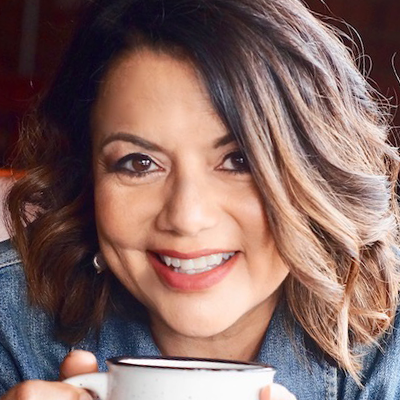Key takeaways:
Many couples run into relationship trouble from time to time. Couples therapy can help you work through your issues before they get worse.
A couples therapist can show you how to communicate better, resolve conflicts, and work through feelings of anger and resentment.
Research suggests that couples therapy helps 70% of couples.
Many couples find it challenging to work through their issues. There may be a breakdown in communication, a lack of forgiveness, or built-up resentment. If that sounds like you, couples counseling may help.
Couples therapy gets both of you in front of a therapist at the same time. It’s also called marriage therapy for partners who have taken wedding vows.
Here’s what you might expect if you and your partner decide to try couples counseling.
What should I expect during a couples therapy session?
Every couples therapist is different. But in general, here’s what you can expect when you attend couples therapy.
1. It can help you learn how to resolve conflicts
You may be surprised to hear that your therapist’s goal is not to resolve your conflicts. It’s to show you how to resolve your conflicts as a couple. There are several ways a therapist might do that.
For example, your therapist might:
Point out negative patterns and show you how to develop constructive patterns of communication and interaction.
Show you how to set goals as a couple.
Help you understand each other’s insecurities and show you how to develop a more secure bond.
Explore traumas and how they have influenced thoughts related to trust, control, and emotional bonding.
Help you change irrational beliefs and think more optimistically.
Work through feelings of anger and resentment and work toward forgiveness.
2. It can help you work on many issues
Couples therapy can help with issues such as:
Decision-making
Intimacy issues
Problem-solving
Symptoms of post-traumatic stress disorder (PTSD)
Communication
Anxiety and depression
Addictions
Couples therapy isn’t just for resolving issues, though. You can also attend couples therapy when things are going well in your relationship. It can help you strengthen your relationship, prepare to navigate a big change, or set mutual goals.
Read more like this
Explore these related articles, suggested for readers like you.
3. Your therapist won’t take sides
For the most part, therapists try to remain neutral and not take sides. They’re trained to be nonjudgmental about what either of you is going through. On that note, therapy is also not about you being “right” and your partner being “wrong.”
4. They may or may not keep secrets
Every therapist has their own way of handling secrets when one of you shares information directly with your therapist but not your partner.
Some will ask you to share the secret with your partner during a session. Others will give you suggestions for disclosing the secret. Still others will talk about family secrecy in general terms and how it can impact relationships.
Ask your therapist about how they deal with secrets at your first session. Many couples therapists include this information as part of the informed consent process before you start.
5. You and your partner get to decide what to work on
Just like in individual therapy, your couples therapist will help you establish your therapy goals. They will give you a chance to tell them what you want to work on. They will probably ask you, “What brings you to couples counseling?” during your first session. You can answer generally, like you want to be able to communicate better. Or you may come in with a specific concern, like coping with a cancer diagnosis.
No matter what you bring to the session, keep in mind that your therapist is trained to spot underlying issues. For example, you may want more intimacy, but your partner has PTSD from sexual trauma. So as part of addressing an intimacy issue, they may want to explore healing strategies for your partner.
6. Things might feel worse at first
It’s possible to feel like things get worse instead of better at first. But that doesn’t mean your relationship is doomed. Counseling may get you to open up about difficult issues for the first time. This can be painful and result in more challenges at first. But over time as you talk through your issues, you should gain a deeper understanding of yourself and your partner.
That said, couples therapy can’t save all relationships. But it can strengthen your relationship if you and your partner decide to stay together and find happiness.
7. You may have homework assignments
It’s possible that your therapist will ask you to work on assignments at home. These assignments are often based on something you worked on during your session. For instance, if you worked on “I feel” statements to practice expressing your emotions to each other in therapy, they may ask you to continue working on “I feel” statements at home.
Examples of other homework assignments include:
Writing an affirming letter to your partner
Scheduling cuddle time
Working on a fun activity together like a puzzle or cooking class
Journaling separately or together
Creating a relationship vision board
Practicing active listening
Going out on a date
8. It often takes time to see results
The amount of time it takes to see change can vary widely. It depends on several factors like how often you go, if there’s any trauma, substance misuse, or infidelity, or how long you and your partner have been in conflict.
Some couples make progress after a few weeks. Others need months or more of weekly or biweekly sessions. As long as you and your partner are committed to working together, you’ll begin to see positive changes eventually.
9. Your therapist won’t tell you to stay together or not
Your couples therapist will not weigh in on whether you should stay together or break up. The goal of therapy is to guide you and your partner into making your own decisions about what’s best. Sometimes this means helping you and your partner explore whether you should stay together or not. But your therapist will never tell you what to do.
10. You will attend regular therapy sessions
Couples in therapy are typically seen together once a week or every other week. Sessions can last anywhere from 45 minutes to an hour. Sometimes a therapist will see each partner individually for a session or two. Your counselor may also refer you to group counseling with other couples.
11. Couples therapy can be very effective
Research suggests that couples counseling can improve relationships. Some studies report improved communication skills, increased trust, and better problem-solving skills. In fact, couples therapy seems to benefit 70% of couples who receive treatment.
What questions might be asked during couples therapy?
Therapists often ask open-ended questions rather than yes and no questions. Sample questions include:
How did you two meet?
Why did you decide to try couples therapy?
What are your biggest similarities and differences?
If you could resolve one of your conflicts instantly, which one would it be?
What are your greatest strengths and weaknesses as a couple?
How do you envision your relationship a year from now? Five years from now?
What kind of conflicts do you have trouble resolving?
How do you express your emotions or deal with emotional situations?
How might you respond differently or validate one another?
How can I prepare for relationship therapy?
It’s normal to feel a little nervous about going to therapy. But by going, you’re taking a brave first step toward healing your relationship.
Here are some steps you can take to get ready:
Make sure you’re both committed to going to therapy together.
Look for a therapist together. Read reviews and ask people you trust for referrals.
If possible, free your schedule after your appointments to give yourself time to unwind and reflect.
Fill out your therapist’s paperwork. Make sure you answer questions honestly and thoroughly.
Go with an open mind. Be prepared to try your therapist’s suggestions.
Be ready to discuss your goals and expectations individually and as a couple.
Understand that therapy isn’t about changing your partner or getting them to do what you want.
How do I find a couples therapist who’s right for me and my partner?
If you think couples counseling could be helpful, try the following to find a couples therapist:
Decide together if you have a gender preference.
Search online for a psychotherapist who focuses on couples. You can try databases like Psychology Today or the Gottman Institute.
When you search online, include terms that are specific to your situation. For example, “gambling addiction,” “infidelity,” or “LGBTQ.”
If you have insurance, check with your plan for in-network counselors. Don’t forget to call and check to see what services are covered.
Ask for recommendations from friends, your healthcare provider, or a spiritual leader.
See if you can schedule an initial phone call with potential therapists. Then be prepared with questions like, “Have you dealt with our situation before?” and, “What therapeutic approaches do you use with couples?”
Attend a few sessions together. It may take four or five sessions to get comfortable. And if you’re both not confident with the first therapist you choose, it’s OK to try another provider.
The bottom line
Couples therapy is a treatment option for couples who are struggling in their relationship or want to strengthen their relationship. It focuses on showing you how to communicate better and resolve conflicts together. Couples therapy can help with many issues such as trauma, intimacy, and addictions.
To find a couples counselor near you, search online, contact your health plan, or ask your provider for a referral.

Why trust our experts?



References
Couples Therapy for Adults Experiencing Relationship Distress: A Review of the Clinical Evidence and Guidelines. (2014). Appendix 4: Summary of included couples therapy interventions. Canadian Agency for Drugs and Technologies in Health.
Couples Therapy for Adults Experiencing Relationship Distress: A Review of the Clinical Evidence and Guidelines. (2014). Summary of evidence. Canadian Agency for Drugs and Technologies in Health.
Deslypere, E., et al. (2020). Family secrecy in family therapy practice: An explorative focus group study. Family Process.
Fischer, D. J., et al. (2014). Clinical processes in behavioral couples therapy. Psychotherapy.
Fischer, D. J., et al. (2016). Clinical processes in behavioral couples therapy. Psychotherapy.
Gelso, C. J., et al. (2017). Neutrality revisited: On the value of being neutral within an empathic atmosphere. Journal of Psychotherapy Integration.
Hawrilenko, M., et al. (2017). Motivating action and maintaining change: The time-varying role of homework following a brief couples intervention. Journal of Marital and Family Therapy.
Lebow, J. L., et al. (2012). Research on the treatment of couple distress. Journal of Marital and Family Therapy.
Ooms, T. (n.d.). Marriage and relationship education and couples and marriage therapy: What’s the difference? National Healthy Marriage Resource Center.
Schofield, M. J., et al. (2012). Short and long-term effectiveness of couple counselling: A study protocol. BMC Public Health.
















